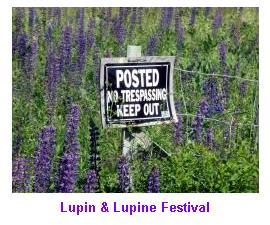Littleton Downtown Riverwalk
Enjoying Mt. Washington
Franklin's Lesson For Today
NH Helicopter Rides
FREE Stuff To Do
NH Lupine Photos
Avoiding Romance Scams
Pittsburg NH Profile
Mascoma Lake Profile
Farm To Table Restaurants
Carroll NH (Twin Mtn.) Profile
Colebrook NH Profile
Ben Kilham Profile
Whitefield NH Profile
Clark's Trading Post
Saracatinib May Help Alzheimer's Patients
Repurposed experimental cancer drug restores brain function in mice.Researchers from the Yale University School of Medicine, New Haven, Connecticut, conducted the animal study, published for early view on March 21 in the Annals of Neurology External Web Site Policy, with support from the National Center for Advancing Translational Sciences (NCATS) through its Discovering New Therapeutic Uses for Existing Molecules (New Therapeutic Uses) program. Launched in May 2012, this program matches scientists with a selection of pharmaceutical industry assets that have undergone significant research and development by industry, including safety testing in humans, to test potential ideas for new therapeutic uses.
Alzheimer's disease is the most common form of dementia, a group of disorders that cause progressive loss of memory and other mental processes. An estimated 5 million Americans have Alzheimer's disease, which causes clumps of amyloid beta protein to build up in the brain, and these protein clusters damage and ultimately kill brain cells (neurons). Alzheimer's disease also leads to loss of synapses, which are the spaces between neurons through which the cells talk to each other and form memories. Current Alzheimer's drug therapies can only ease symptoms without stopping disease progression. New treatments are needed that can halt the condition by targeting its underlying mechanisms.
Through NCATS' New Therapeutic Uses program, Yale neurobiology researcher, neurologist and senior author of the study Stephen Strittmatter, M.D., Ph.D., and his
 colleagues obtained saracatinib (AZD0530), which the biopharmaceutical company AstraZeneca previously developed to treat cancer. Strittmatter and his team knew from previous studies that a protein called Fyn kinase plays a central role in how amyloid beta clusters damage brain cells. Saracatinib targets the same Fyn protein and already had cleared several key steps in the development process, giving Strittmatter's team a critical head start on the research.
colleagues obtained saracatinib (AZD0530), which the biopharmaceutical company AstraZeneca previously developed to treat cancer. Strittmatter and his team knew from previous studies that a protein called Fyn kinase plays a central role in how amyloid beta clusters damage brain cells. Saracatinib targets the same Fyn protein and already had cleared several key steps in the development process, giving Strittmatter's team a critical head start on the research."The investigational drug already had been developed, optimized and studied in animals as well as tested for safety in humans, so our ability to obtain this asset through NCATS and AstraZeneca gave us an incredible shortcut in the drug development process," Strittmatter explained.
Typically, drug development can take at least a decade from the discovery of a therapeutic target to an experimental compound's entry into a Phase 2a human clinical trial to test effectiveness. In the case of saracatinib, the research team completed required preclinical and clinical safety studies and began a Phase 2a trial within about 18 months.
"This work demonstrates what can happen when NIH, the biopharmaceutical industry and academia innovate and collaborate to share resources and knowledge," said NCATS Director Christopher P. Austin, M.D. "The speed with which this compound moved to human trials validates our New Therapeutic Uses program model and serves NCATS' mission to deliver more treatments to more patients more quickly."
"No one individual or group has complete knowledge of disease pathways and treatment targets," said Craig D. Wegner, Ph.D., head, Boston Emerging Innovations Unit, Scientific Partnering & Alliances within AstraZeneca's Innovative Medicines and Early Development Biotech Unit. "This program enabled us to pair AstraZeneca's data on this compound with the Strittmatter group's specialized Alzheimer's disease knowledge to uncover a potential new therapeutic use for saracatinib. It's a great example of how scientists from industry and academia can synergistically work together to push the boundaries of medical science."
In the animal study, the Yale team gave the experimental drug to mice with Alzheimer's-like symptoms, such as memory loss and age-related buildup of abnormal amyloid beta clusters, modeling the development of the disease in humans. After four weeks, the Alzheimer's mice showed complete reversal of spatial learning and memory loss. When the scientists examined the brains of the mice, they found that the characteristic synapse loss had been fully restored, providing a biological explanation for the memory improvement. The treatment also reduced several other Alzheimer's-related biochemical changes in the mice and did not appear to be toxic.
Already, the Yale scientists have completed a successful Phase 1b safety trial in humans with Alzheimer's disease (NCT01864655). Now the team is enrolling more participants in a larger, multisite Phase 2a trial (NCT02167256) to assess safety, tolerability and effectiveness of the experimental compound. A total of 152 participants will receive saracatinib or placebo for one year, and the researchers expect to have final results within two years. Individuals interested in participating in the trial can find more information here .
Both human trials were funded by the New Therapeutic Uses program (Phase 1b: 1UH2TR000967-01; Phase 2a: 4UH3TR000967-02). The Phase 2a study will take place at multiple clinical sites as part of the Alzheimer's Disease Cooperative Study External Web Site Policy, an initiative for multisite clinical studies sponsored by the National Institute on Aging (NIA) to facilitate the development and testing of new therapeutics for the condition.
In addition to NCATS, the NIH Common Fund (IUH2TR000967-01), NIA (5R01AG034924-05), BrightFocus Foundation, Alzheimer's Association and Falk Medical Research Trust provided funding for the animal study.
Learn more about NCATS' New Therapeutic Uses program at http://www.ncats.nih.gov/therapeutics.html .
Seussical (9/6-15)
2001 Space Odyssey (9/7)
Muster in the Mountains (9/7-9)
Wingzilla (9/8)
Canzoniere Grecanico Salentino (9/9)
Things [Mom] Taught Me (9/13-23)
Reach the Beach (9/14-15)
WM Storytelling Festival (9/14-16)
Metallak Race (9/15)
Mandeville & Richards (9/15)
Cohase Film Slam (9/16)
Tricycle Grand Prix (9/16)
Rodney Crowell (9/21)
NH Highland Games (9/21-23)
Don Who (9/22)
Harvest Celebration (9/22)
Health & Wellness Fair (9/22)
Jeep Invasion (9/22)
Lakes Region Tri Festival (9/22-23)
Pat Metheny (9/26)
Driving Miss Daisy (9/27 - 10/6)
Neko Case (9/27)
Shot of JD (9/28)
Dixville Half Marathon (9/29)
New Hampshire Marathon (9/29)
Matthew Odell (9/30)
Lincoln Fall Craft Festival (10/6&7)
Sparrow Blue & Crowes Pasture (10/6)
Oktoberfest (10/6-7)
White Mountain Oktoberfest (10/6-7)
Fall Foliage Celebration (10/6-8)
Sandwich Fair (10/6-8)
Paddle the Border (10/7)
Lincoln Fall Craft Festival (10/7-9)
Shadow Play (10/10)
Killer Joe (10/11-21)
Greg Brown (10/12)
Camping & RV Show (10/12-14)
Riverfire & Horrorfest (10/13)
Jay Stollman Band (10/19)
Murder Dinner Train (10/19-20)
Pumpkin Patch Express (10/19-21)
All Things Pumpkin (10/20)
Ethan Setiawan Band (10/20)
Bettye LaVette (10/26)
Murder Dinner Train (10/26-27)
Pumpkin Patch Express (10/26-28)
Berlin Jazz (10/27)
Photo Galleries





Business Directory
Moffett House Museum
Northland Restaurant
Perras Treasures Party Store
Personal Touch Home Health
White Mountain Cottages
more ►


Clark's Trading Post
Cog Railway
Conway Scenic Railroad
Flume
Fort Jefferson Fun Park
Jericho Mountain ATV Park
Kancamagus Highway
Littleton Riverwalk
Lost River Gorge
Mountain Meadow Funplex
Mt. Washington Auto Road
Polar Caves
Santa's Village
Storyland
Vertical Ventures
Whale's Tail Water Park
Woodstock Inn & Brewery
more ►
Community Profiles
Bethlehem
Bretton Woods
Colebrook
Conway
Franconia
Gorham
Hanover
Jackson
Lebanon
Lincoln
Littleton
North Conway
Pittsburg
Plymouth
Twin Mountain
Whitefield
Wolfeboro
more ►
Recreation and Tourism
Farm To Table Restaurants
Hiking To Crash Sites
Little Ski Areas
Local Movie Theaters
Local Performance Theaters
Moose Tours
more ►
Other Resources
NH Cabins & Cottages
NH Census Info
NH Data (OEP)
NH Fishing Reports
NH Foliage Report
NH Hiking Trail Conditions
NH Lottery
NH Movie Guide
NH Road Conditions
NH Ski Reports
NH Snowmobile Trail Reports
NH State Parks
NH Town Officials Directory
NH Weather
Summer Safety Tips
[.pdf]
White Mtn. National Forest
VisitNH.Gov
Copyright 2012-2018 by George C. Jobel , 603-491-4340. All Rights Reserved.





















